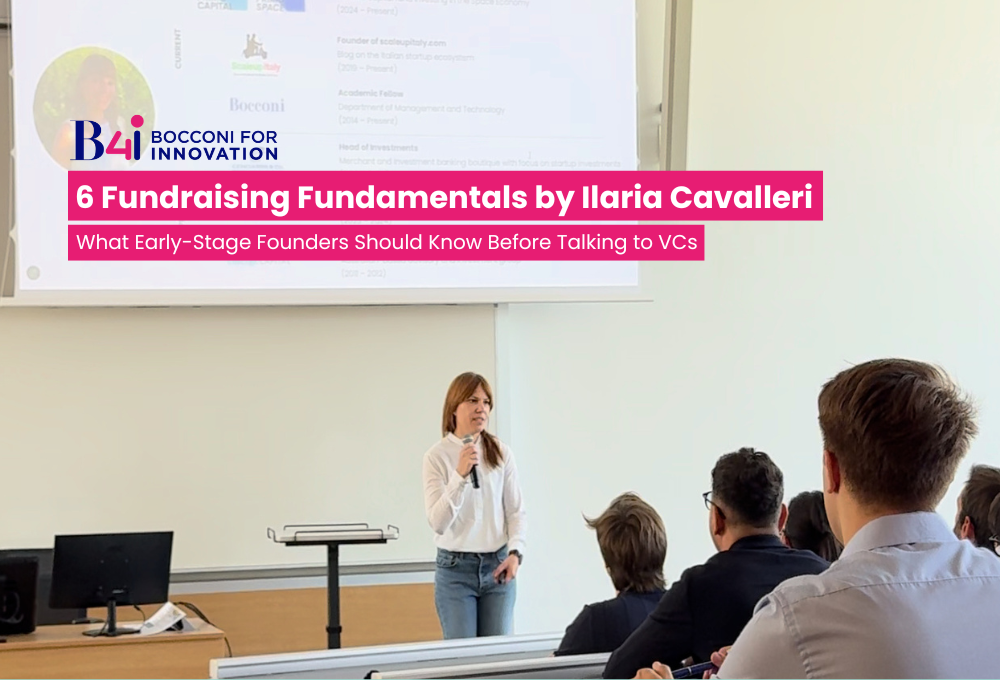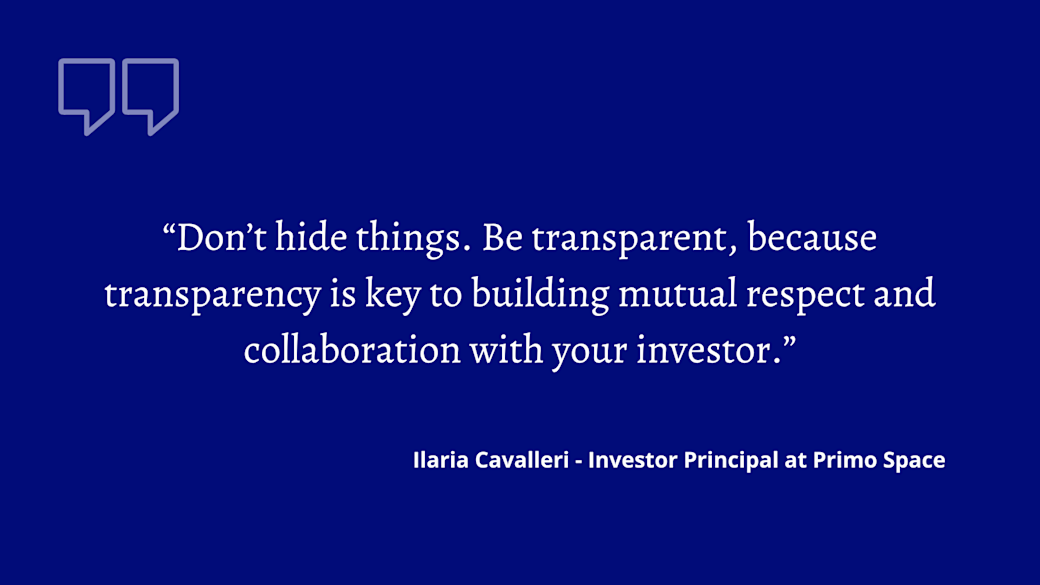


During the kick-off of B4i’s Pre-Acceleration Program (batch XII), Ilaria Cavalleri, Investor Principal at Primo Space, shared essential insights with the founders in the room. Her session, titled "Navigating the VC Landscape: What Founders Should Know", provided a pragmatic view into the mindset of venture capital investors and offered clear guidance on how to navigate early-stage fundraising.
This article distills her key insights, offering practical advice for startup teams preparing for their first fundraising journey.
As Cavalleri explained, before diving into strategies, it’s important to understand how VC funds operate.
“Venture capitalists invest professionally. They raise capital from other investors - limited partners - and this capital goes into a closed-end fund that lasts ten years. The first five years are dedicated to creating the portfolio; the last five are for managing and exiting the companies” said Cavalleri.
VCs invest when valuations are low, aiming to exit when valuations increase significantly. They are minority investors who expect founders to be committed and in control of the company. “We don’t manage the company, but we want to be part of strategic decisions. We act as business partners.”
One of the most overlooked aspects of fundraising, Cavalleri noted, is timing: not in terms of market cycles, but in founder-investor relationships.
“Start building a relationship even before you approach the investor and open the round,” she advised. “If you meet them at an event, talk to them, so when you’re ready and send a pitch, we already know you. It’s much easier.”
Warm intros and informal interactions lay the groundwork for trust. Founders should leverage industry events, accelerators, and network connections to make themselves known before sending a pitch deck.
Not every fund is the right fit for every startup. Cavalleri emphasized the importance of researching an investor's strategy, stage focus and sectoral priorities:
“Try to understand the strategy of the investor you're talking to. If there's some misalignment, explain why that misalignment exists.”
A B2B SaaS startup targeting a generalist fund is not the same as pitching a space-tech idea to a fund with a manufacturing focus. Misalignment signals a lack of preparation, and that undermines credibility.
 Ilaria Cavalleri quote
Ilaria Cavalleri quoteVCs need to assess opportunities and risks quickly. To that end, Cavalleri urges founders to:
Articulate a clear value proposition
Explain why their team is uniquely positioned to succeed
Be honest about challenges and risks “Don’t hide things. Be transparent because, at one point, with due diligence, we’ll know everything about you anyway.”
Traction, even if limited, should be demonstrated. Whether through user growth, pilot partnerships, or revenue, investors want to see signals that the market wants what you're building.
According to Cavalleri, one of the most important (and underused) opportunities during a fundraising process is the feedback loop:
“Ask for feedback. If we decide not to invest, ask why. We always provide it — but maybe you would like to understand it better. So ask.”
Treat rejection not as a dead end but as valuable data. Each 'no' is a chance to iterate your messaging, metrics, or go-to-market approach.
Summarizing what matters most during evaluation, Cavalleri highlighted these pillars:
Market: Large, growing, with room for a category leader
Technology: Feasible roadmap, capital-efficient development
Team: Passionate, relevant experience, strong founder dynamics
Traction: Revenue or KPIs that show customer interest
Mindset: Coachability, clarity, and the ability to collaborate with investors
“Do they know the market? Do they have a clear vision? Can we work with them? That’s what we look at.”